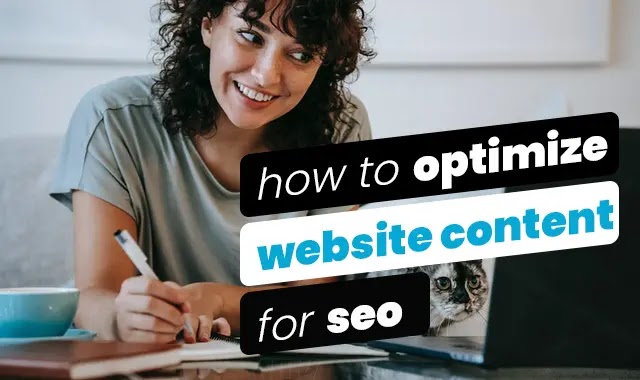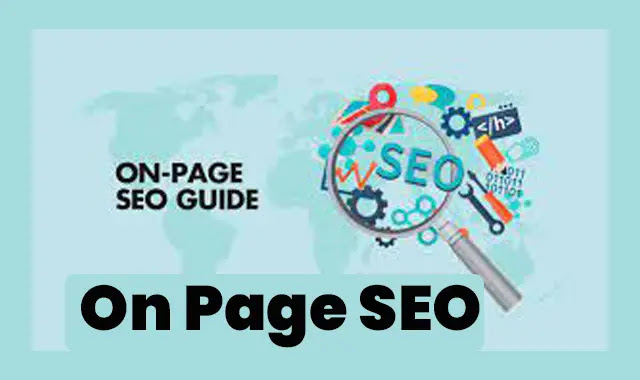optimize website content for seo
Search engines are really really important to your business. In fact, they are so important that SEO is probably the most important thing you can do to help your business grow. However, many people get into SEO without even being aware of it.
That’s because SEO is difficult and even though you might be doing it well, there are still a lot of people who do a poor job of it. This means that your content may seem good to search engines but not to customers or potential customers. This is why it’s important to spend time building content that will be optimized for search engines before you start optimizing the rest of your site for free traffic.
This also leads to an issue where some people don’t understand how search engines work and think they know what they are doing when in fact they don’t understand what Google does or how Google does it. But despite this lack of understanding, these people have a huge influence over other people’s searches, which can make all the difference in terms of customer acquisition costs, revenue, and overall success.
So here are some things you can do to improve your content for SEO:
- Use the right keywords in the right places (this one applies even if you don’t use keywords)
- Use images optimally (this one applies even if you don’t use images)
- Ensure that links work so that sites linking to yours are likely to be found by search engines (this one applies even if you don’t use links)
- Make sure that newly added pages won't bury old pages by using alt tags (this one applies even if you don't use alt tags)
- Keep your site updated with new content regularly so that search engines know what's new on each page (this one applies even if you keep your site up-to-date with new content regularly)
These points could be written in a million different ways but I hope they explain why SEO matters and why making them part of your marketing mix is as critical as any other part of it. It's all about making sure your audience comes first when it comes to real traffic from search engines and making sure this happens early on in development is an investment worth making now.
SEO Metrics & Keyword Research
So, how do you get better at SEO?
Google has been trying to optimize search results for several years now: their Panda update of 2014 was an example of this. But you can also improve your own ranking by improving the quality of the content you produce, or by optimizing for keywords that get better rankings.
In this post, I’ll discuss the importance of keyword research in SEO (as well as explain how to do it). In particular, I’ll talk about keyword research vs. keyword research and explain what each is and why they are useful (and which one is best to use). In doing so, I’ll also explain different ways to make use of keyword research to optimize your own content.
On Page SEO
I included a link to this post in my previous list of marketing posts under the title “10 Marketing Lessons that You Should Know”. But, as I said in that list, I only meant to highlight some of the tips and tricks to apply them consistently.
I’d also like to add a couple of reminders about SEO:
An SEO is not an SEO expert. Ever since Google began ranking sites based on search traffic alone (and Webmasters began assuming they were experts), every site has assumed that it knows how to optimize for SEO. This is false. A site’s positioning is determined by the content on the page and its activeness (that is, its number of visitors). The term “ranking” simply means that the information in the site — or at least its relevancy — has been assessed and judged by algorithms (humans). Algorithms are sophisticated enough to weigh factors like audience engagement, relevancy, and competition with other sites against each other too; but they are not experts on what it takes to rank well.
What can you do? There’s no single magic bullet — your users will always come before your site anyhow; there are no guarantees that you will be able to catch your users from behind them (you can make an attempt at it, but you should never assume you know what will be effective); and even if you do find an effective technique for improving your ranking for one day or week, it doesn’t mean it will always work the next day or week too (even after a few days, your users may change their behavior)…
The point is that you need to continuously optimize for both traffic and quality. There is no one-size-fits-all solution for optimizing for both rankings and engagement rates; there are many different techniques, most of which have benefits over others depending on where your business sits in terms of traffic volume.
Off-Page SEO
SEO has become a hot topic with more and more of us getting involved in it. But, if you are like most people, you are either new to this field or at least don’t have a solid understanding of it.
I have been doing SEO for nearly 15 years now, and I can tell you that there are three common mistakes I see my clients make when it comes to content (in the early days of their SEO implementation):
- They don’t understand what they should be looking for in the search results.
- They don’t understand why they need to look for things in the search results.
- And lastly, they don’t know how much content needs to be produced before making an attempt to.
rank for keywords
Let me explain further as I see it in this particular case:
I am currently working on a startup (work is always fun) and we are looking to rank for keywords that relate back to our business and our products. As part of this, we use Moz Data Sift which provides data on top 100 search queries that people actually type into Google (not just what they click on). We also use tools like Google Search Console and Google Analytics which can help us understand what keywords people look for when searching for specific services or products within our industry. This helps us optimize our website content accordingly:
optimize website content
The internet is an amazing place, and the amount of data available to us is mind-boggling. It is a powerful tool that allows us to have a direct impact on the way people perceive and understand our products. But it also means that there are thousands of files that are useless to marketers, or even worse, things that could be useful if they could be optimally structured.
There are many, many factors that go into making a piece of content useful — it all depends on what you want people to do with it. For example, if you want them to come back and read some pages again (or share the link), then you want the content to be descriptive enough so that your readers can find it easily and easily understand what they’re meant to do with it. If you want your reader to start thinking about how he/she can get more in their lives (by improving his/her productivity) then the content must provide proof or evidence of this (e.g., actionable item lists).
How to SEO optimize a blog post
SEO is the holy grail of content marketing. It’s not just about optimizing your content for search engine positions, it’s about optimizing your content for people who do NOT search engines.
SEO is essential to business success, especially as a first priority. We all know that people will read what we put in front of them (whether it’s an ad or a blog post), and this is equally true for content — the more useful, engaging, and relevant our content is, the higher it's chance of being read and shared by someone who isn’t a search engine.
SEO optimized content writing
A good place to start in terms of SEO strategy is with your own site; but even if you don’t have a site yet, there are some basic rules that you can follow that will help improve the visibility of your content on other sites (and ultimately increase visibility in Google).
- Write content that has substance and meaning.
- Use keywords that are relevant to your audience.
- Make sure you include credit where credit is due.
- Don’t write in subject lines on images (unless they are unique enough to stand out from their neighbors).
Encourage others to do the same by using domain-specific keywords and adding an "authority" link to each page where appropriate. This puts credibility and authority back into the mix. If you need help with this or have any questions, you can ask your question below.
Conclusion
How to optimize website content for SEO is a very general question and its answer will depend on the context.
SEO optimized content example
For example, in the case of a professional services firm, how do they define “professional”? They might use the term “professionals” in a narrower sense (ie. those who are registered with an agency or otherwise affiliated with a particular industry). If they do that, they may be competing with other professionals within the same field (eg. lawyers and accountants), who may be using different terms to describe themselves. Or they might use different terms to describe themselves depending on their industry (eg. consultants vs lawyers vs accountants vs journalists).
Or maybe they’re offering their services to all professionals within an industry, so there’s no need to differentiate: can you find someone who will help you out on a project, or do you just want them to do something for you? Or perhaps you have an idea for a new product and need some expertise before you can go ahead and launch it.
- What kind of person are we talking about here?
- What type of company are we talking about?
- What kind of content should we offer?
- What should we include on our site for SEO purposes?
- These questions vary from context to context: it depends on your strategy/objectives/likelihood of success/opportunity costs/etc, and also depends on your competitors.
Perhaps the correct answer isn't really the "right answer", but many companies seem to fall into one of two camps:
- A person can write anything without thinking about how to compete in this market;
- The best marketers know what people are looking for and will target them towards products/services that fit their needs as closely as possible;
- Everything is going well as long as it sells well;
- Content marketing is only useful if it actually helps you reach the kind of market share that is worth paying attention to;
- Everything should be optimized for SEO unless something else makes sense;
- People don't care about SEO until after they sign up/purchase.



Comments
Post a Comment